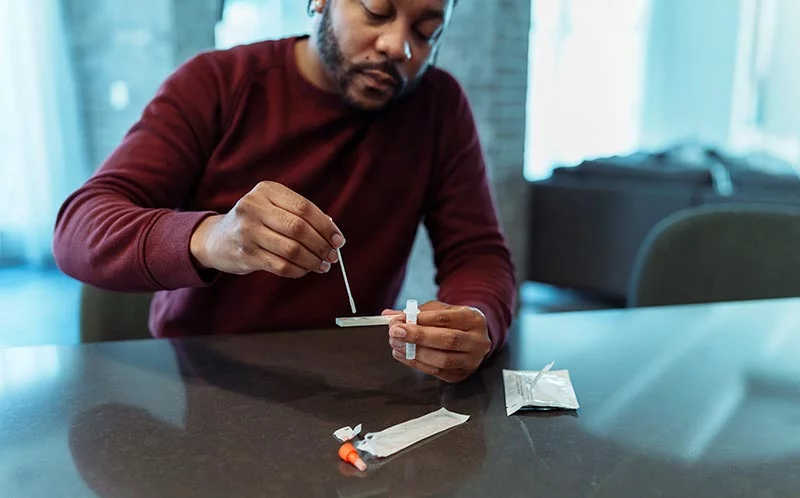This post was updated on February 11th, 2025 at 10:49 AM
- What is COVID-19?
- COVID-19 antiviral therapy
- UCHealth Visitation policy
- What you should do if you think you have COVID-19
- Helpful information for patients and the public
- Information for community providers
- Interested in providing in-kind donations related to COVID-19? Learn how you can help.
COVID-19 cases and test positivity rates continue to change in our state. Here is the most recent information by county according to the CDC.
If you are sick, or are coughing or sneezing and need to visit a hospital or your doctor’s office, please wear a mask. People may also want to consider wearing a mask in the community, especially if they have a weakened immune system or are over 60 years old.
Number of patients with confirmed or suspected COVID-19 infections in UCHealth’s hospitals

Check Your Symptoms
Please call the clinic or schedule a video appointment if any of these apply to you:
- Have been in contact with someone who tested positive for, or had symptoms of COVID-19 in the last 14 days OR
- New cough, fever or shortness of breath in the last 72 hours OR
- Two or more of these symptoms that are new in the last 72 hours: Chills, muscle aches, severe headache, sore throat, runny nose, vomiting, diarrhea, loss of smell or loss of taste.
Virus mutations
Scientists continue to identify new variants of the virus that causes COVID-19. This is not uncommon as respiratory viruses can change often. Studies have shown that vaccines remain effective against variants.
The best way to protect yourself and others from new versions of COVID-19 is to get vaccinated, continue wearing a mask, social distancing and wash your hands often.
[newsletter]
Free at-home COVID-19 tests are available. How and when should you use them?
At-home COVID-19 tests, also known as rapid antigen tests, are convenient and accessible, and now, U.S. households can once again order four free tests. But be careful. The test results can be wrong. Learn when and how to use the tests.

Everything you need to know about the new COVID-19 vaccine
Everyone in the U.S. — except young babies — can get the new 2023-24 COVID-19 vaccine this fall, and most private insurance plans along with Medicaid and Medicare will cover the vaccine at no cost to patients.

Pregnancy and COVID-19: Study probes the possible long-term effects of COVID on pregnant moms and their children
The study is part of the RECOVER initiative, research that aims to understand and address the lingering effects of COVID-19 infections.

Researchers are testing treatments for long COVID symptoms, ranging from brain fog to shortness of breath
The studies, which are part of the RECOVER initiative, target a host of symptoms that are most troubling for patients enduring long-term health effects after COVID-19.

Chest pain after COVID-19 among concerning symptoms
COVID-19 can exacerbate underlying heart conditions, but long COVID symptoms like chest pain and shortness of breath also affect young, previously healthy people.

How to regain your sense of taste and smell after COVID-19
Powerfully aromatic and flavorful foods like ginger, peppermint and peanut butter can help you get your sense of smell and taste back. So can strongly-scented essential oil.
 A rundown of coronavirus drugs for home and hospital
A rundown of coronavirus drugs for home and hospital
There’s no proven cure or treatment for COVID-19. Some drugs may help; chloroquine, the antimalarial medication, may or may not.
 Coronavirus: To zinc or not to zinc?
Coronavirus: To zinc or not to zinc?
Zinc is no coronavirus magic bullet, but it could help. Studies have shown zinc lozenges to be effective in shortening the misery phase of the common cold.
The latest from the U.S. Centers for Disease Control and Prevention
The CDC is updating information about COVID-19 on its website.
The latest from the Colorado Department of Public Health and Environment
Patients who have general questions can call the Colorado Department of Public Health and Environment at CO-Help at 303.389.1967 or 1.877.462.2911 or email [email protected]. Answers are available in English and Spanish (Español), Mandarin and more.
